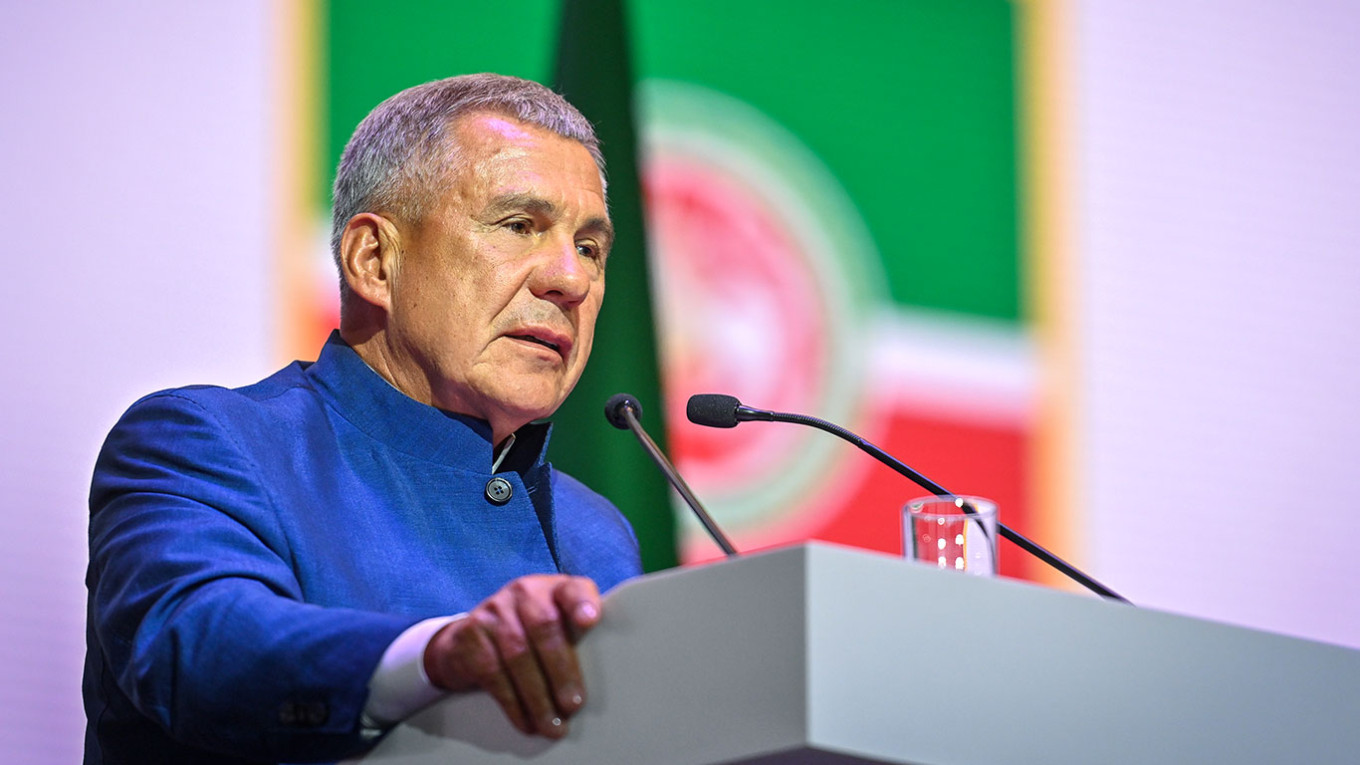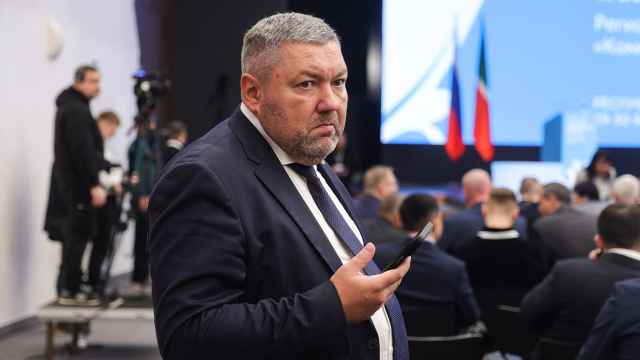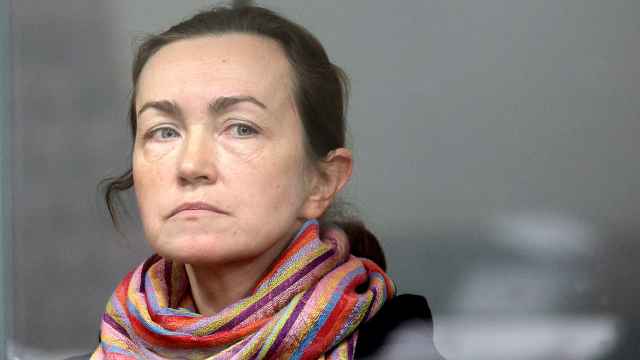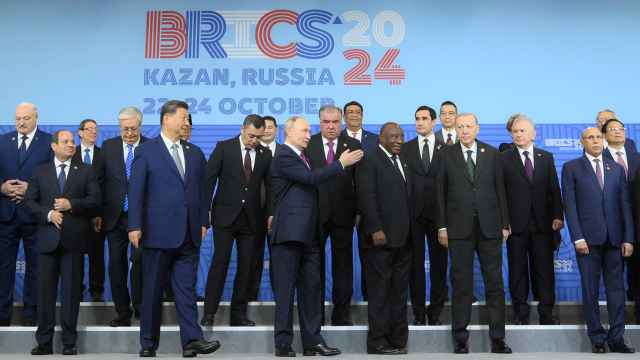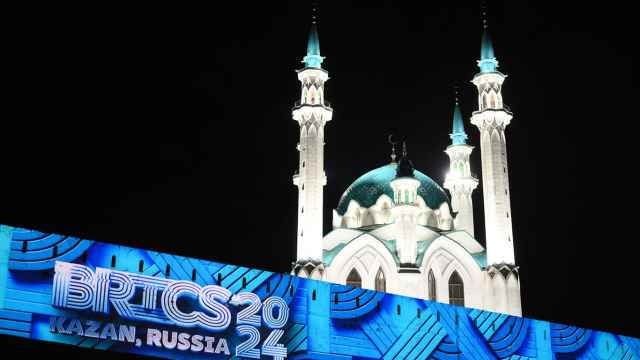It was just two lines on an otherwise minor bureaucratic document.
But President Vladimir Putin’s designation of the leader of Russia’s republic of Tatarstan Rustam Minnikhanov last month as “head” of the region in an executive order was a symbolic moment for the erosion of regional autonomy.
It was the first time the leader of Tatarstan had not been referred to as “president” since the Russian Federation’s establishment in the 1990s.
“Tatarstan resisted this renaming for a very long time because the region has always been and is the flagship of federalism,” said Tatar political expert and journalist Ruslan Aysin.
The downgrading of the title has caused soulsearching in the majority-Muslim region and among the broader community of Tatars, Russia’s second largest ethnic group, who fear that it could be a milestone on a road toward further marginalization.
It also marks the end of regional presidencies in Russia — Putin is now the only person in the country who can formally be referred to as president.
The change came after Putin signed a law in December abolishing regional presidencies despite protests from Tatarstan’s regional assembly and other cultural and political figures.
“The only positive thing is that Tatarstan was the last to lose the presidential post and that our government was able to stand up to Moscow,” said Rafis Kashapov, a veteran Tatar rights activist and co-founder of the regional pro-independence Free Idel-Ural movement.
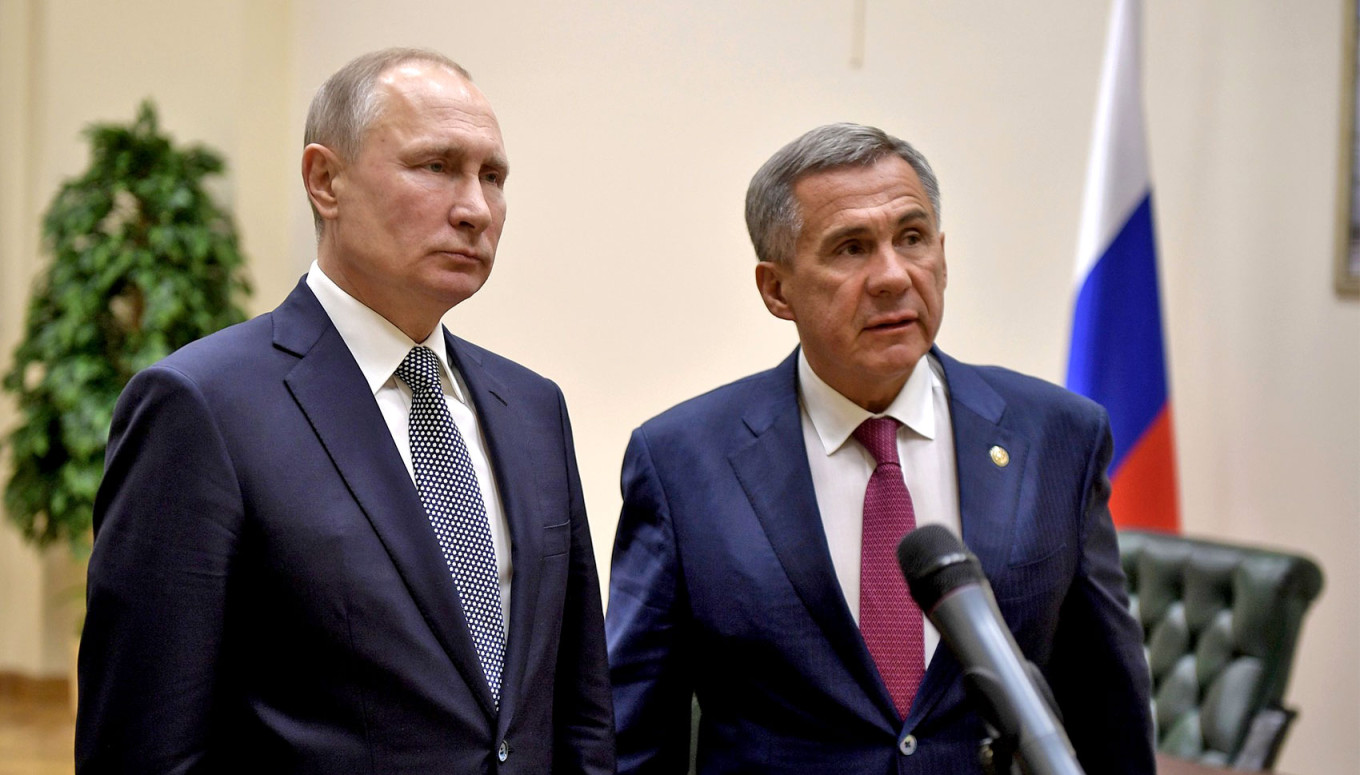
Tatarstan exhausted all its “existing legal resources” in the failed attempt to resist the change from being implemented, according to Aysin.
Disappointment about December’s decision was even expressed by current head Minnikhanov, who told reporters at the time that “our voice wasn’t heard.”
Once the Russian invasion of Ukraine began there was no longer any point in resisting, Aysin told The Moscow Times.
“After Russia’s armed aggression against Ukraine started… of course, any point of view that contradicts the official position of Moscow is considered treason,” he said.
However, while formal resistance to the change is over, informal opposition may continue, according to Tatars living in the region.
Just days after Putin’s executive order was made public, the speaker of Tatarstan’s State Council Farid Mukhametshin announced that the region will continue to refer to Minnikhanov as “president” until the title is formally amended in the region’s own constitution.
And a similar approach is likely to be taken by the broader Tatar public — particularly Tatar intellectuals who have historically supported the region’s sovereignty project.
“I can only speak for my circle with certainty: everyone is used to the word ‘president’ and, most likely, will continue using it,” Alsu Khafiz, a popular YouTube blogger from Tatarstan, told The Moscow Times.
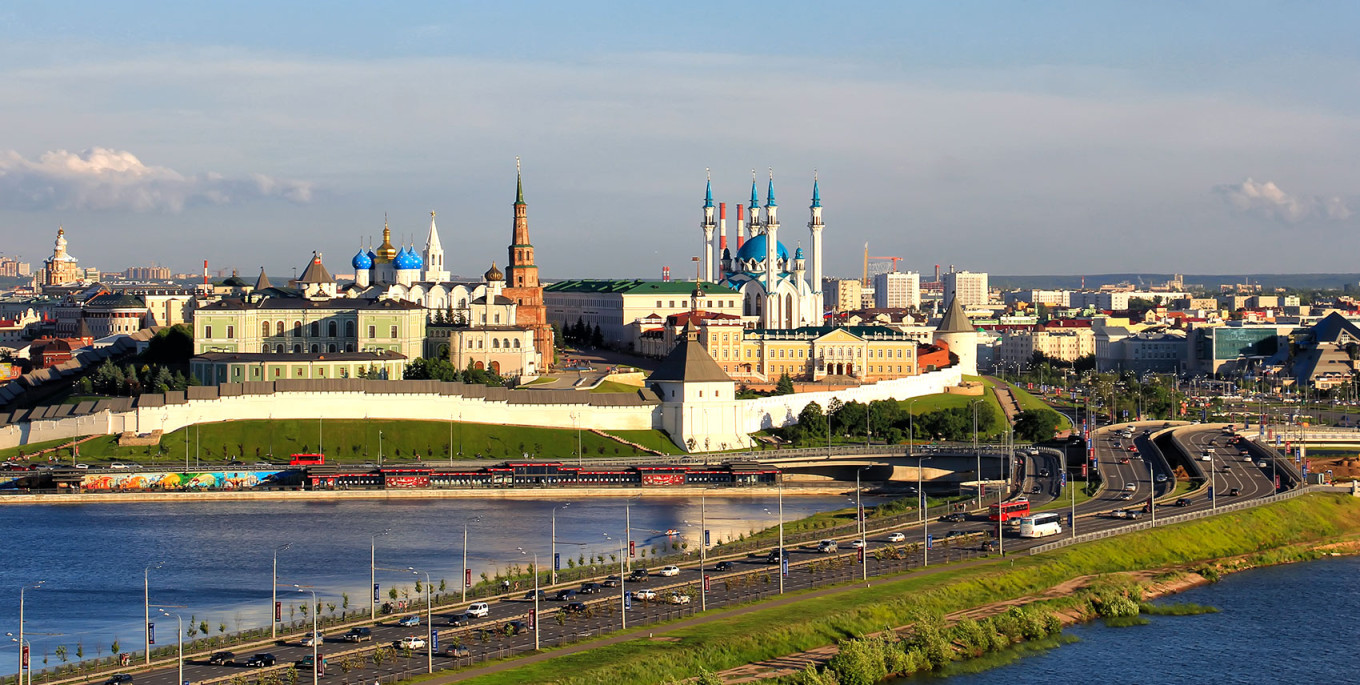
Tatarstan — which voted to secede from Russia in 1992 but remained within the Russian Federation after agreeing a power-sharing treaty with Moscow — was long hailed by observers as the last bastion of Russia’s federalism.
While 12 Russian regions were bestowed with local presidencies in the 1990s, they were gradually dissolved under pressure from Moscow. Tatarstan was the only one to retain use of the title after neighboring Bashkortostan gave it up in 2015.
“The disappearance of the title… is the latest, and perhaps final, element of [Tatarstan’s] ‘sovereignty project’ that began in the early 1990s and reached its zenith in the mid-2000s,” said Kate Graney, an expert on Russian politics at Skidmore College.
The loss of the presidency was preceded by a series of other limits imposed on regional autonomy. Tatarstan was forced to abandon mandatory teaching of its second official language, Tatar, in schools in 2017 — a major blow to preservation of the region’s identity.
“It’s definitely the end of an interesting and hopeful era, but one which has been winding down for a long time,” Graney told The Moscow Times.
Growing autocracy in Russia means that the burden of preserving the legacy of Tatar statehood will likely fall on the shoulders of exiled activists and members of the diaspora, according to journalist and expert Aysin.
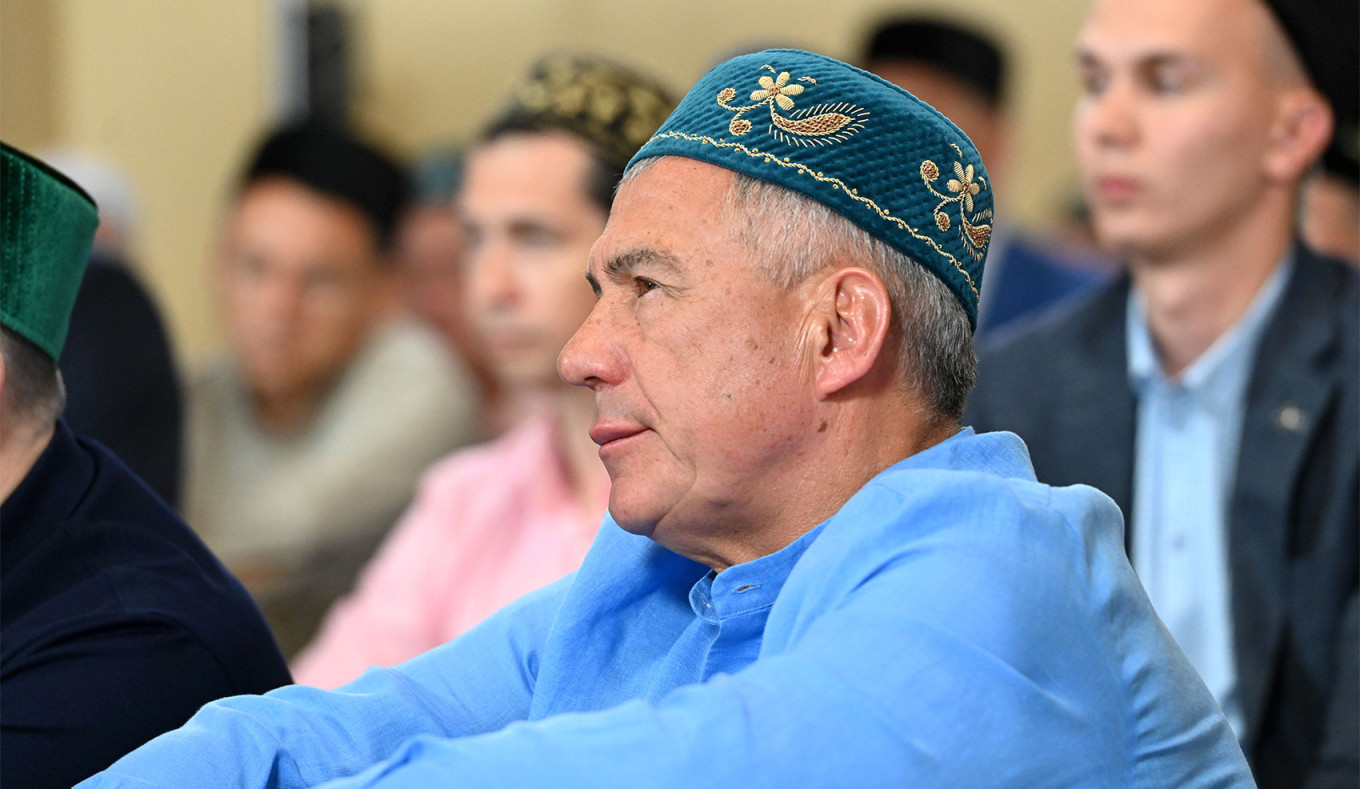
There are at least 1 million Tatars living around the world, including in Turkey, the U.S. and the United Arab Emirates, as well as a number of European Union member states like Germany, the Czech Republic and Lithuania.
“Tatarstan’s political elite is devastated, lost, and doesn’t know how to act,” said Aysin. “Tatars living outside of Tatarstan and outside of Russia are tuned into the discussion about Tatarstan’s future, not only because it's the mainstream discourse... but also because they have no choice but to speak up when Tatarstan can’t.”
Kashapov, who lives outside Russia, believes that speaking about Tatar statehood and reminding the world of the nation’s existence is more vital than ever.
“Today the title of the president of Tatarstan is destroyed and tomorrow they [Moscow] could destroy, break apart the republic of Tatarstan,” he told The Moscow Times.
“All of the symbols we are proud of could soon vanish. That’s why at all events we raise the official flag of Tatarstan: to remind the people that we have a state, we have a flag.”
A Message from The Moscow Times:
Dear readers,
We are facing unprecedented challenges. Russia's Prosecutor General's Office has designated The Moscow Times as an "undesirable" organization, criminalizing our work and putting our staff at risk of prosecution. This follows our earlier unjust labeling as a "foreign agent."
These actions are direct attempts to silence independent journalism in Russia. The authorities claim our work "discredits the decisions of the Russian leadership." We see things differently: we strive to provide accurate, unbiased reporting on Russia.
We, the journalists of The Moscow Times, refuse to be silenced. But to continue our work, we need your help.
Your support, no matter how small, makes a world of difference. If you can, please support us monthly starting from just $2. It's quick to set up, and every contribution makes a significant impact.
By supporting The Moscow Times, you're defending open, independent journalism in the face of repression. Thank you for standing with us.
Remind me later.



